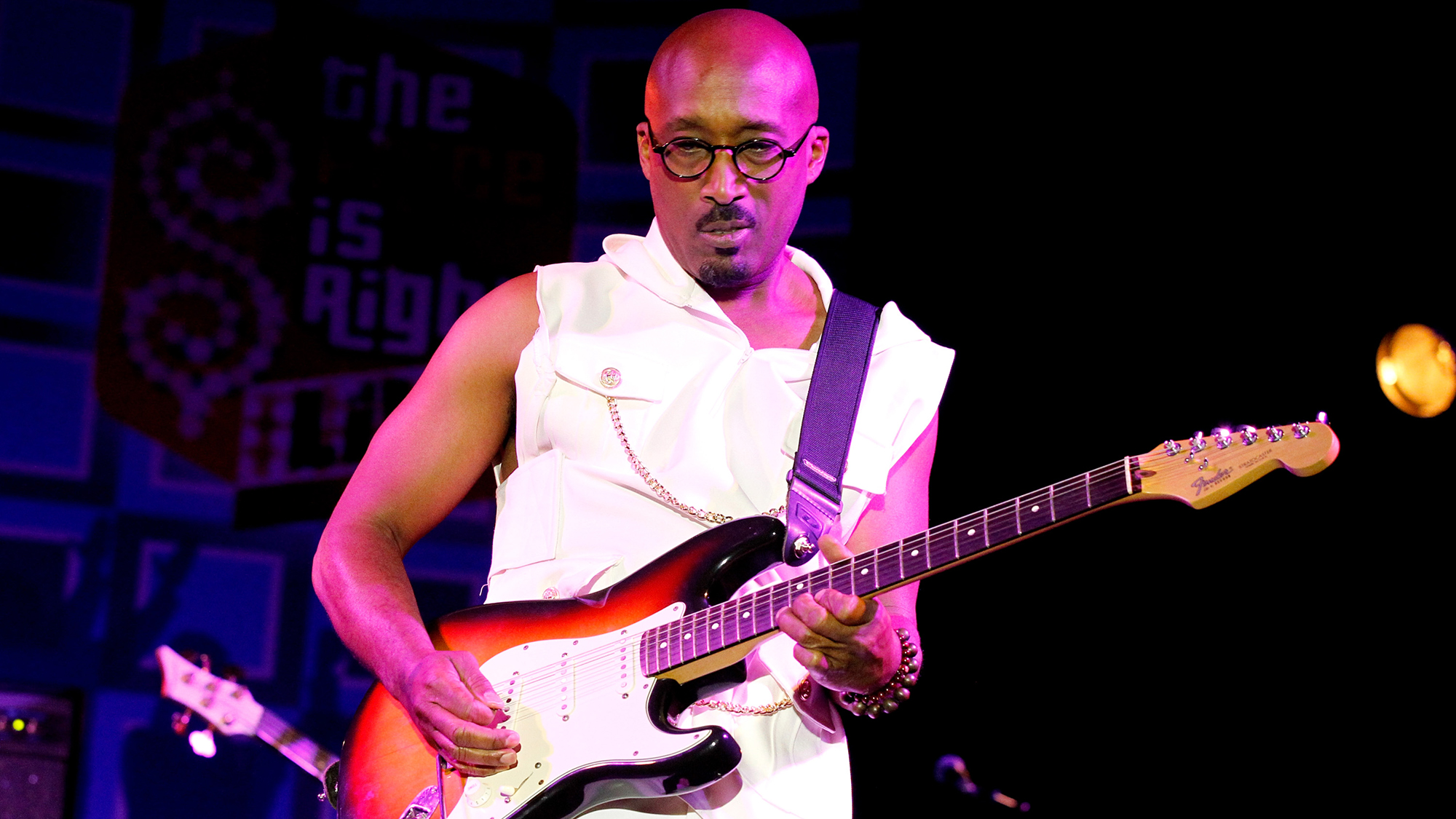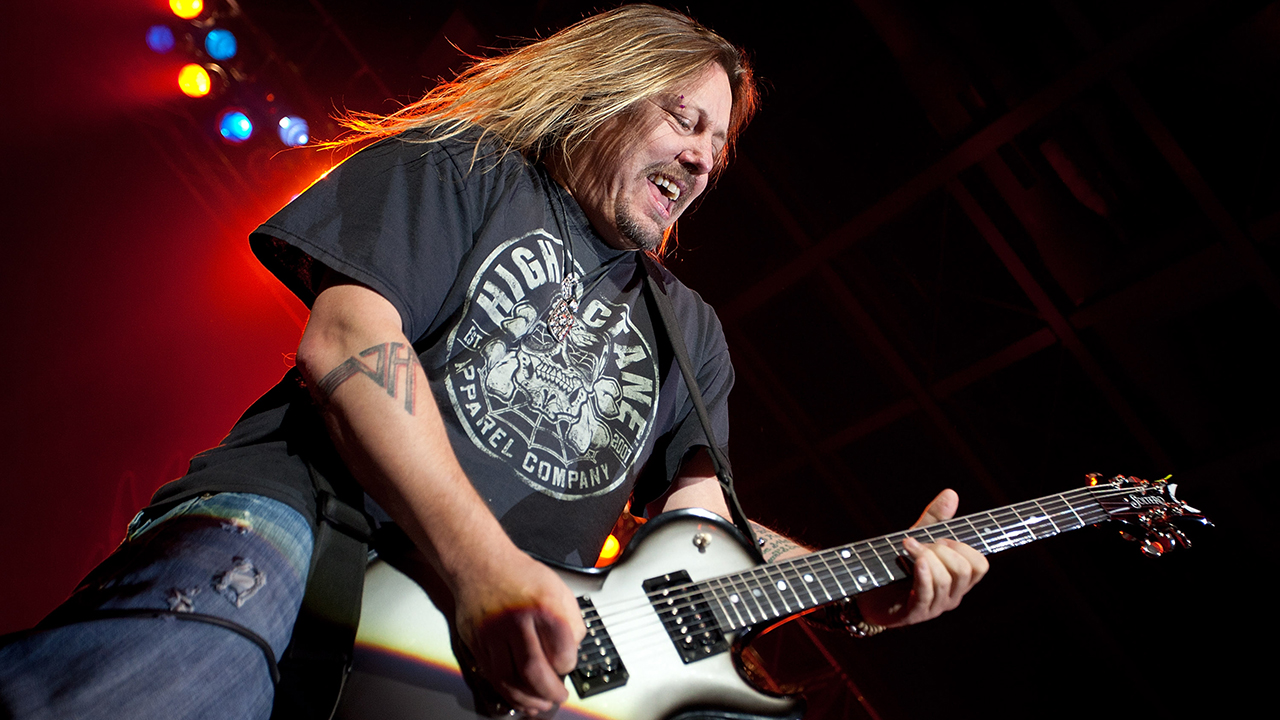“He was my Michael Jordan growing up. I’m in it because of him”: D’Wayne Wiggins, influential Tony! Toni! Toné! guitarist who helped pioneer neo soul, dies aged 64

All the latest guitar news, interviews, lessons, reviews, deals and more, direct to your inbox!
You are now subscribed
Your newsletter sign-up was successful
D’Wayne Wiggins, the influential R&B guitar star who helped co-found Tony! Toni! Toné!, has died at the age of 64.
The news was announced in a statement posted by the Wiggins family, which confirmed the guitarist had been battling bladder cancer for the past year.
“With broken hearts, we share with you that our beloved D’Wayne passed away this morning surrounded by family and loved ones,” the statement reads. “Over the past year, he has been privately and courageously battling bladder cancer. Through this fight, he remained committed and present for his family, his music, his fans and his community.
“D’Wayne’s life was incomparable, and his music and service impacted millions around the world, including in his hometown of Oakland, California. He was a guitarist, producer, composer, philanthropist, mentor and founding member of Tony! Toni! Tone!
“He was deeply passionate about providing artist development and mentorship to emerging young musicians, helping to shape the early careers of many.
“For now, we ask that you continue to respect our privacy. We mourn with you, and are deeply grateful for your love and support.”
A post shared by TONY! TONI! TONÉ! (@tonytonitoneofficial)
A photo posted by on
Born in 1961, Wiggins founded Tony! Toni! Toné! at the age of 25 with his brother, Raphael Saadiq, and their cousin, Timothy Christian Riley. The R&B outfit achieved considerable success throughout the ’80s and ’90s, with Little Walter from their 1988 debut, Who?, topping the soul charts.
All the latest guitar news, interviews, lessons, reviews, deals and more, direct to your inbox!
A string of hit singles followed – Feels Good from 1990’s The Revival among them – with the band experiencing their biggest commercial success with Sons of Soul in 1993. Three years after dropping the double-platinum record, Tony! Toni! Toné! released their fourth and final album, House of Music, before going their separate ways.
After Tony! Toni! Toné!, Wiggins launched a solo career in 2000 with Eyes Never Lie – which featured Carlos Santana as a collaborator – before establishing the Grass Roots Entertainment label, which supported the likes of Destiny’s Child (featuring a young Beyoncé) and Keyshia Cole.
A pioneer of the neo soul genre who pieced together a unique blend of funk, hip-hop and blues through his adept employment of Fender Stratocasters and Coronados, Wiggins also collaborated with Alicia Keys, and won a Grammy for co-producing If I Was Your Woman.
The original Tony! Toni! Toné! lineup reunited in 2023. Saadiq recently confirmed a documentary about the band is in the works.
“D’Wayne was my teacher,” Saadiq – who received a signature Fender Telecaster last year – once said of his brother during an interview with The Breakfast Club. “He was my Michael Jordan growing up. I’m in it because of him. He taught me how to play instruments.”

Matt is the GuitarWorld.com News Editor, and has been writing and editing for the site for five years. He has a Masters in the guitar, a degree in history, and has spent the last 19 years playing everything from blues and jazz to indie and pop. During his GW career, he’s interviewed Peter Frampton, Zakk Wylde, Tosin Abasi, Matteo Mancuso and more, and has profiled the CEOs of Guitar Center and Fender.
When he’s not combining his passion for writing and music during his day job, Matt performs with indie rock duo Esme Emerson, and has previously opened for the likes of Ed Sheeran, Keane, Japanese House and Good Neighbours.
You must confirm your public display name before commenting
Please logout and then login again, you will then be prompted to enter your display name.

